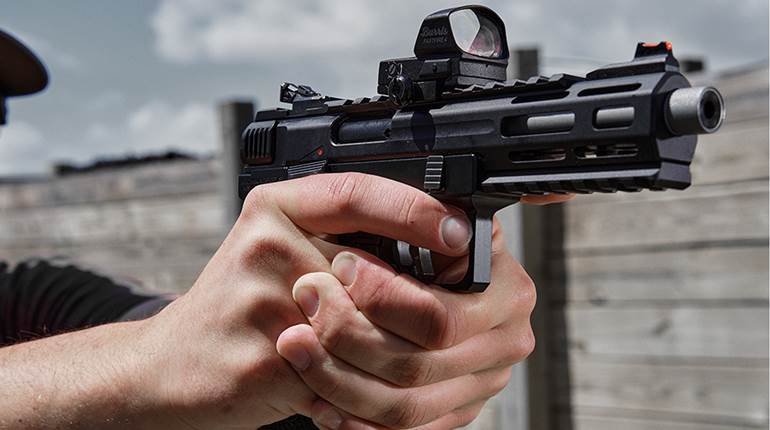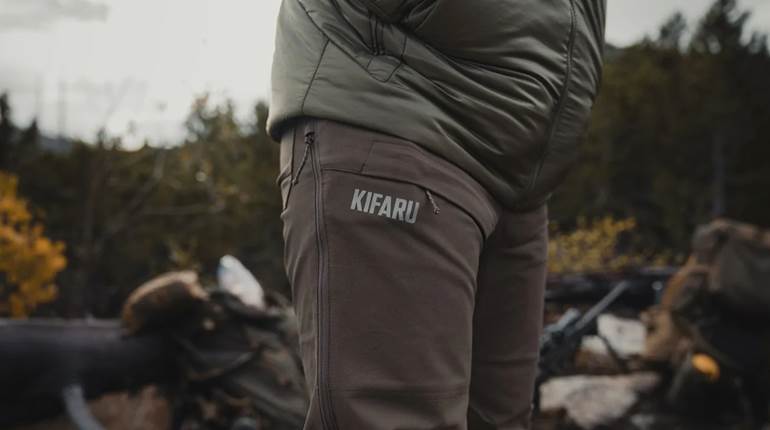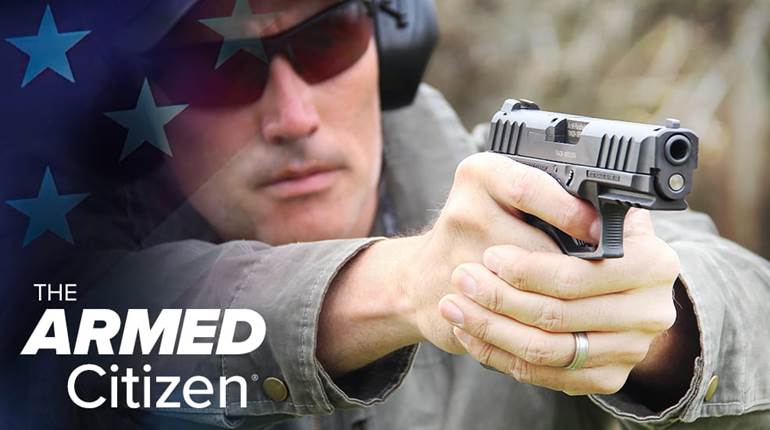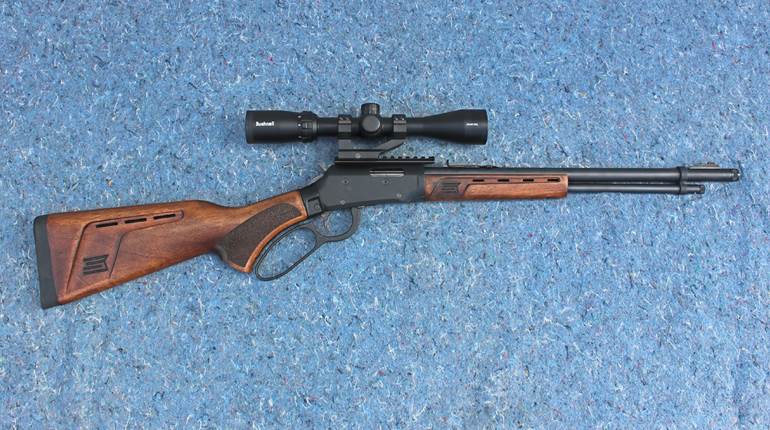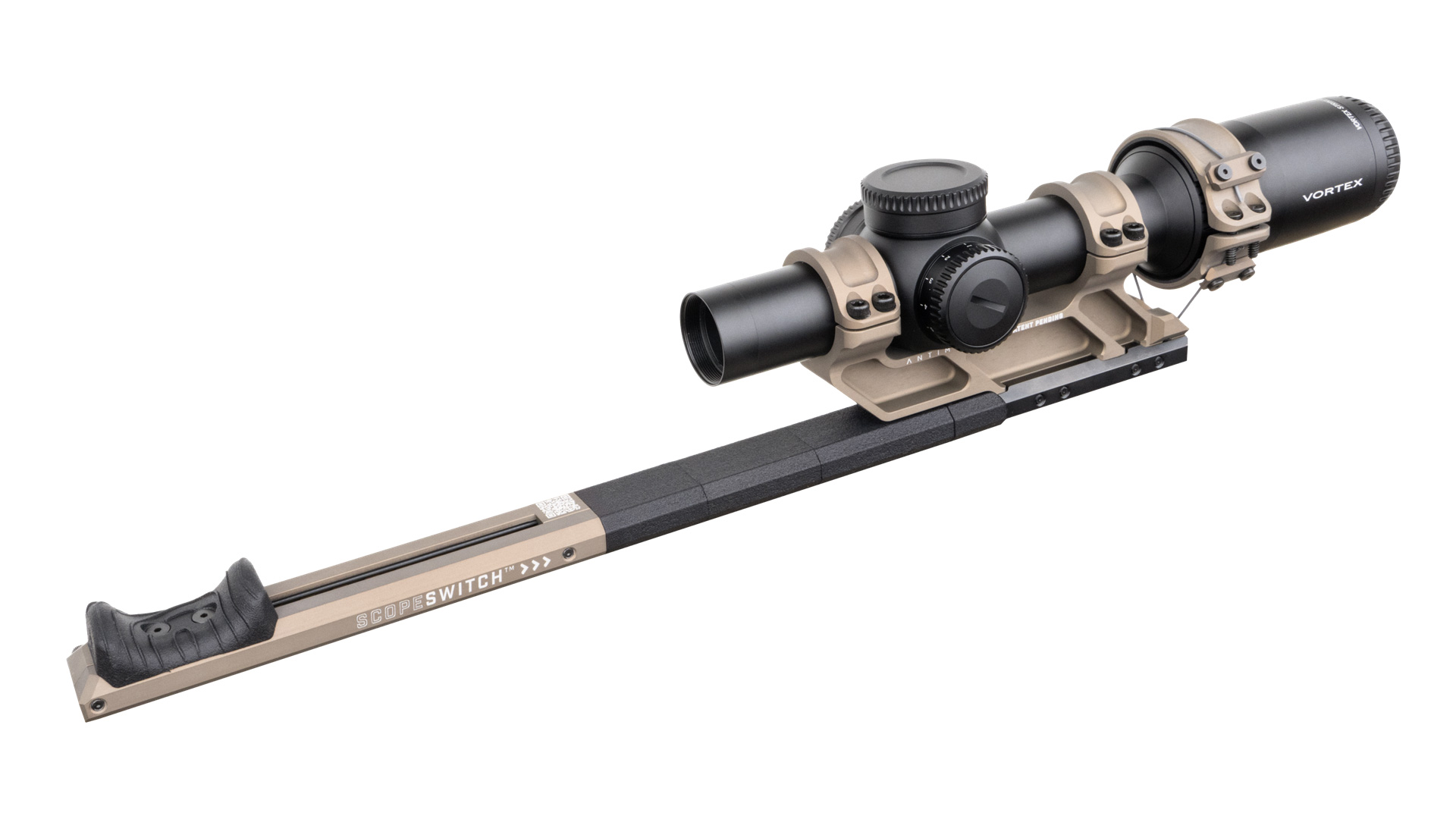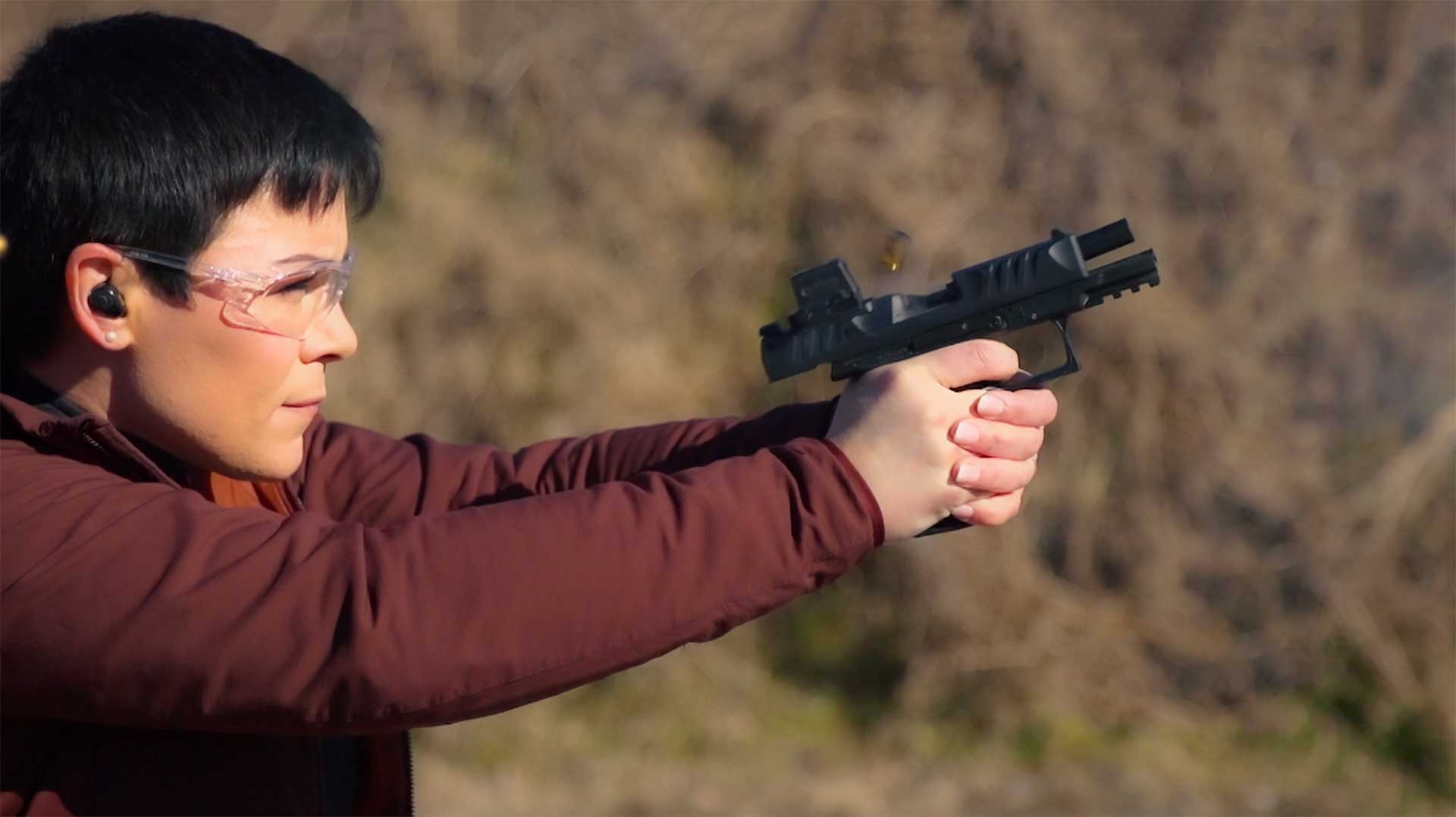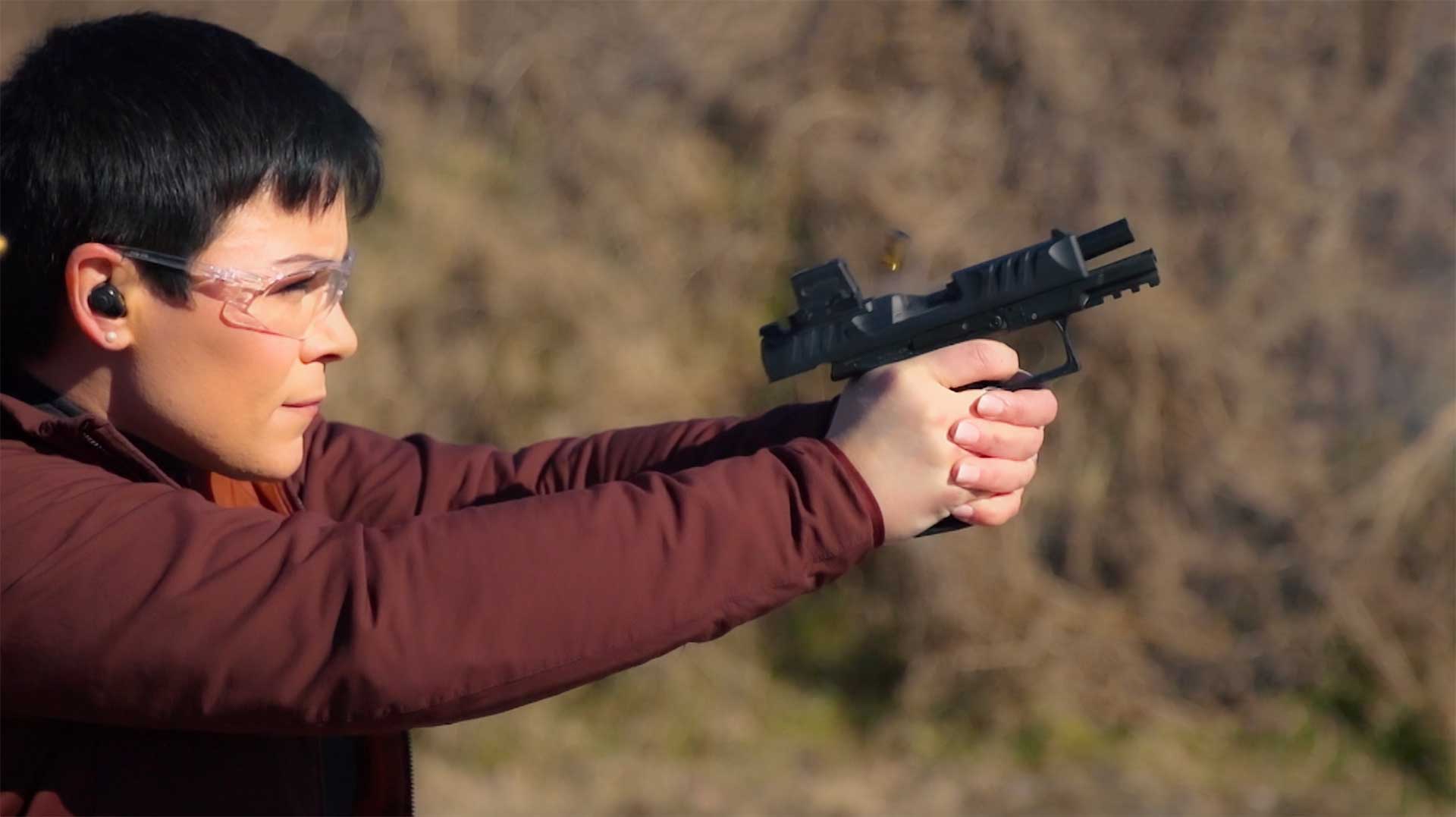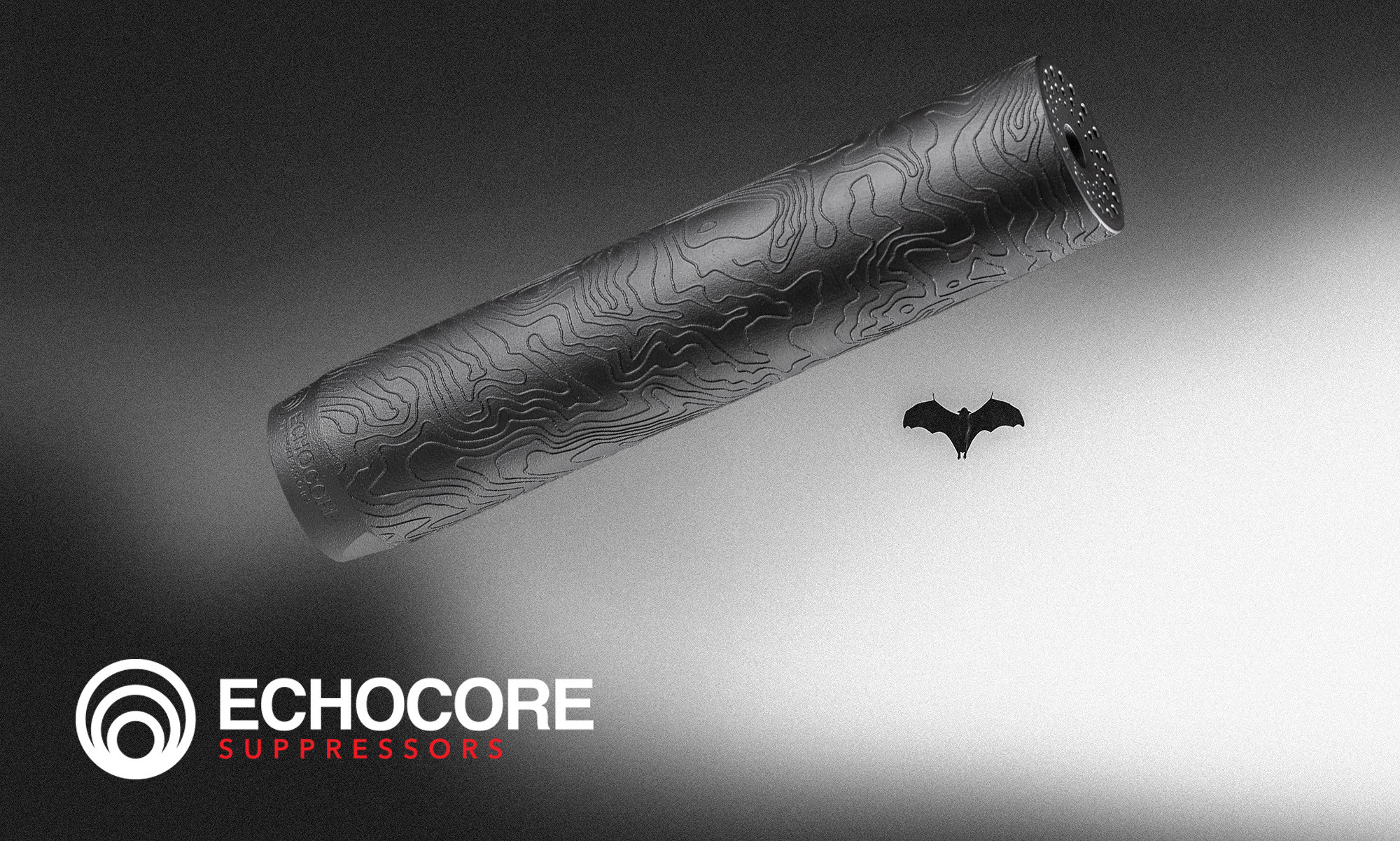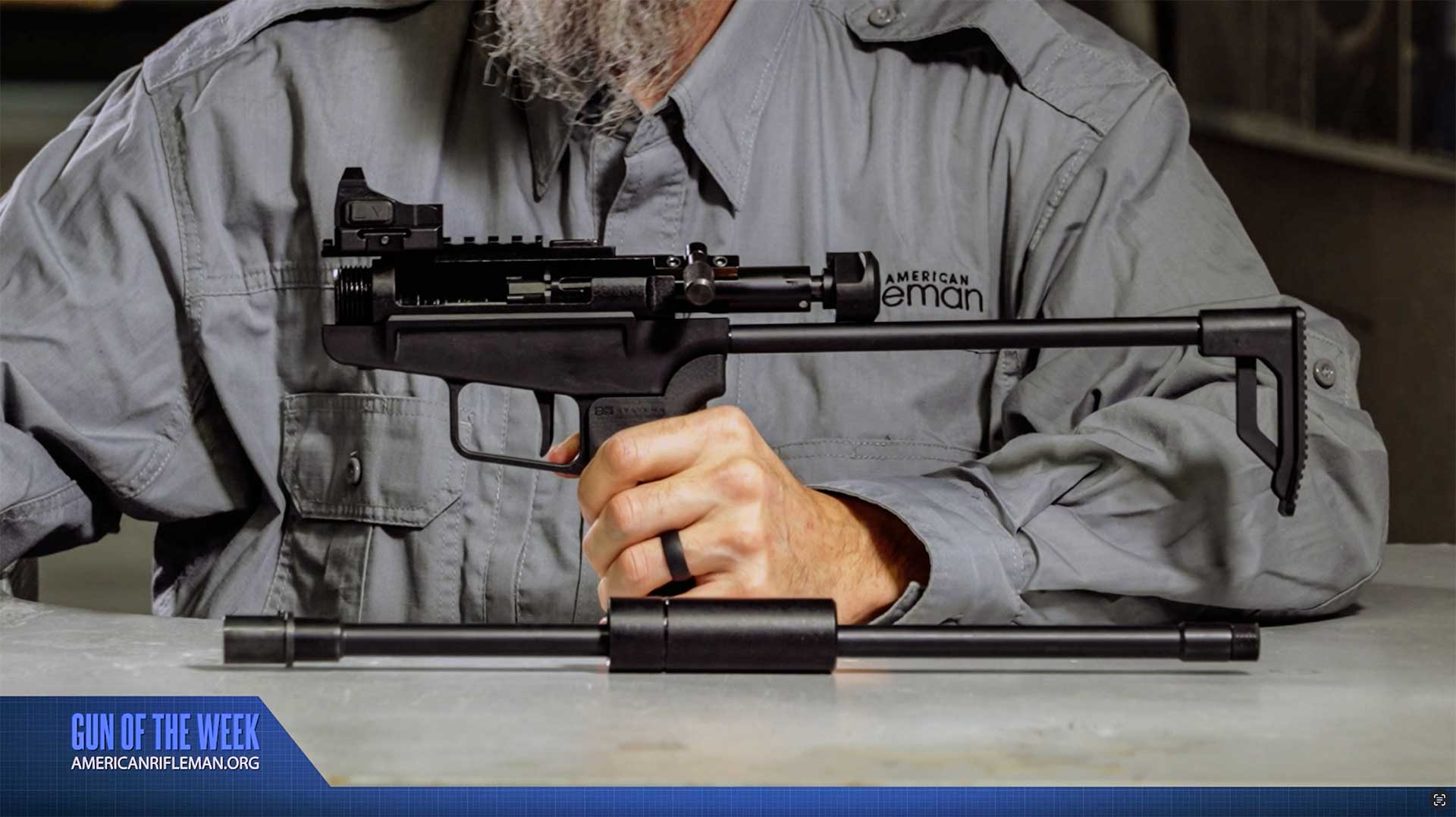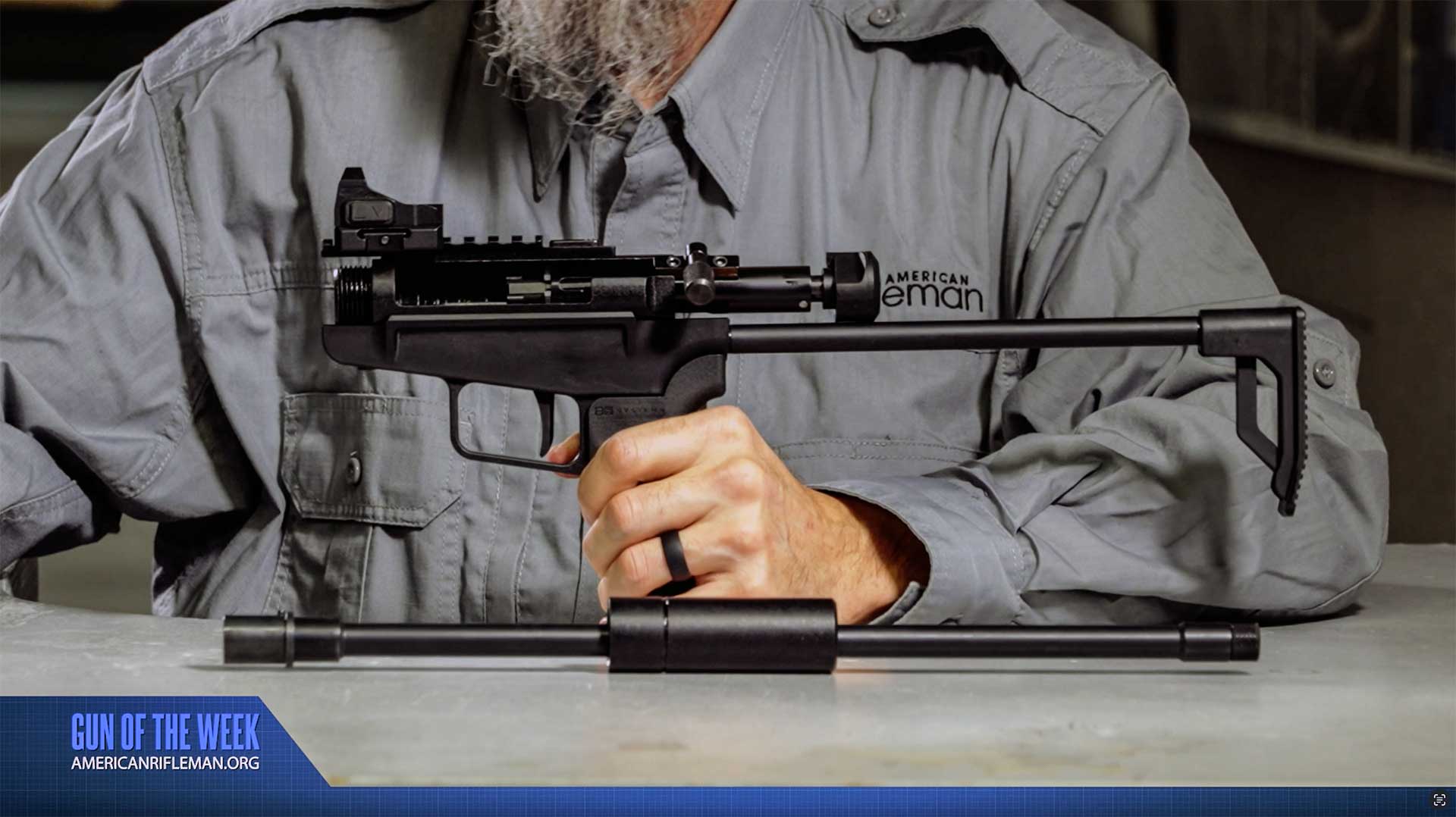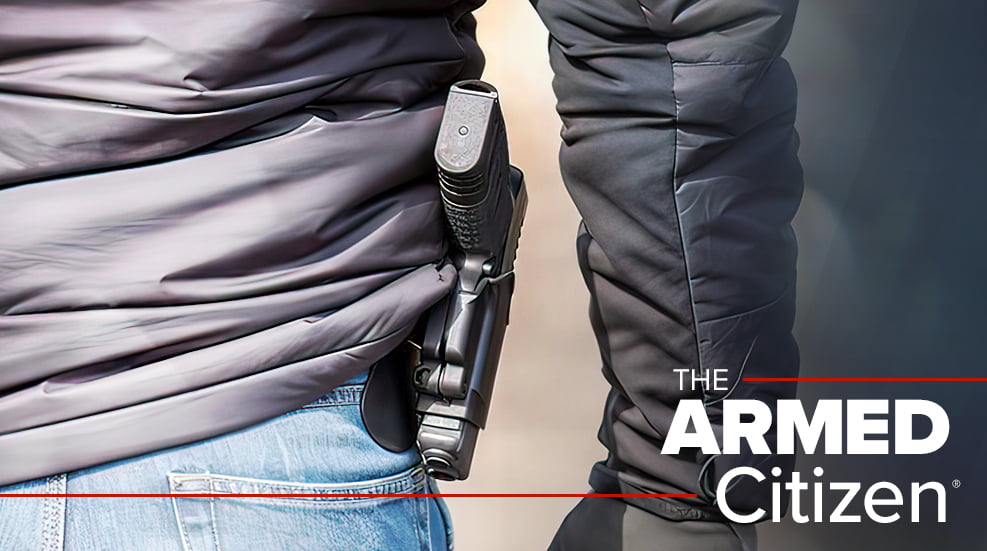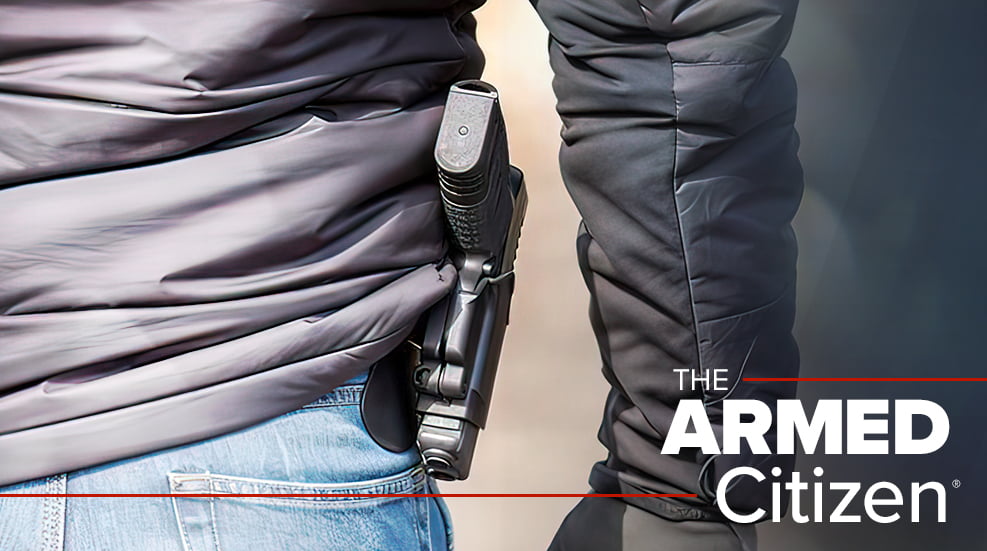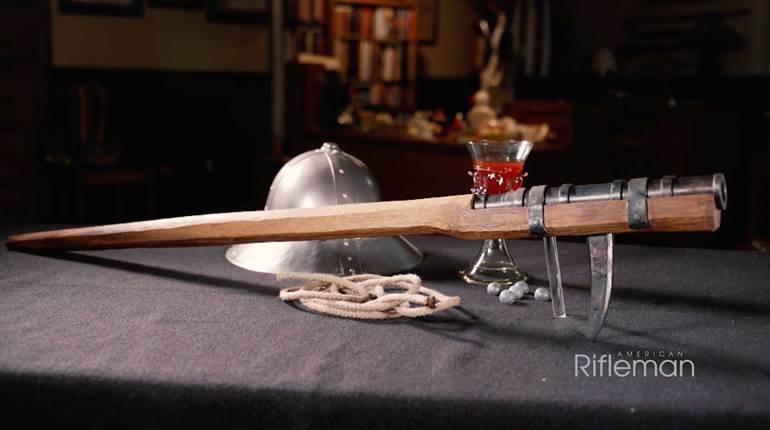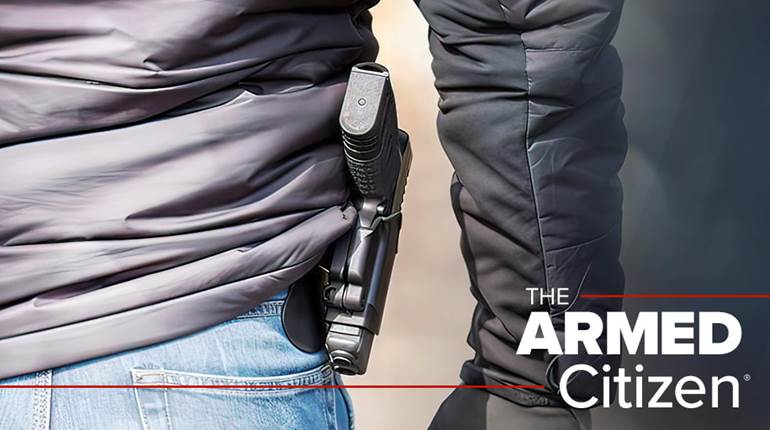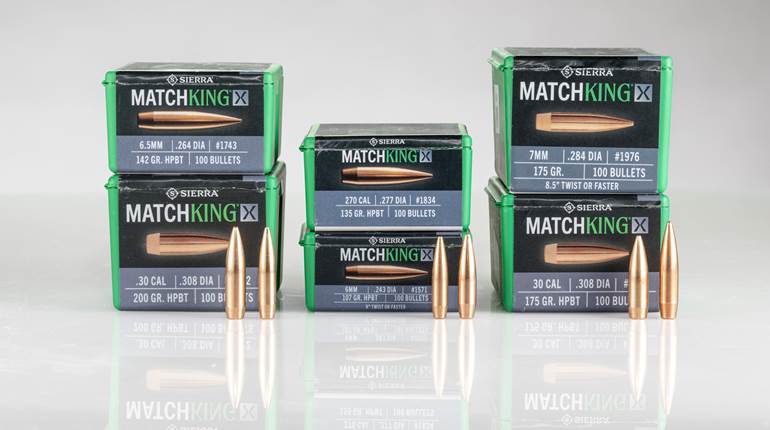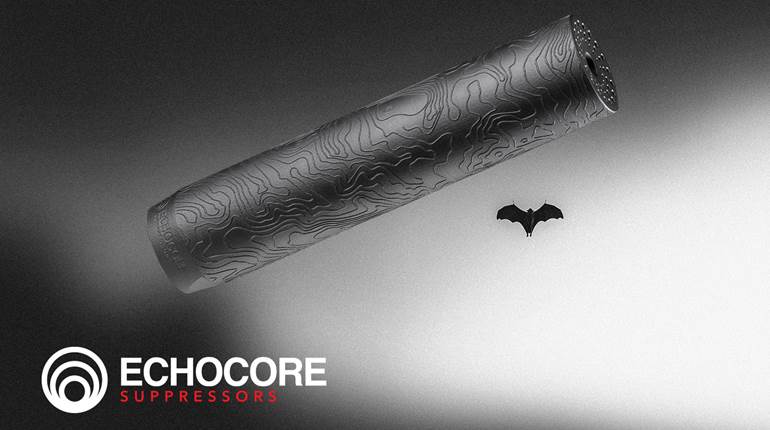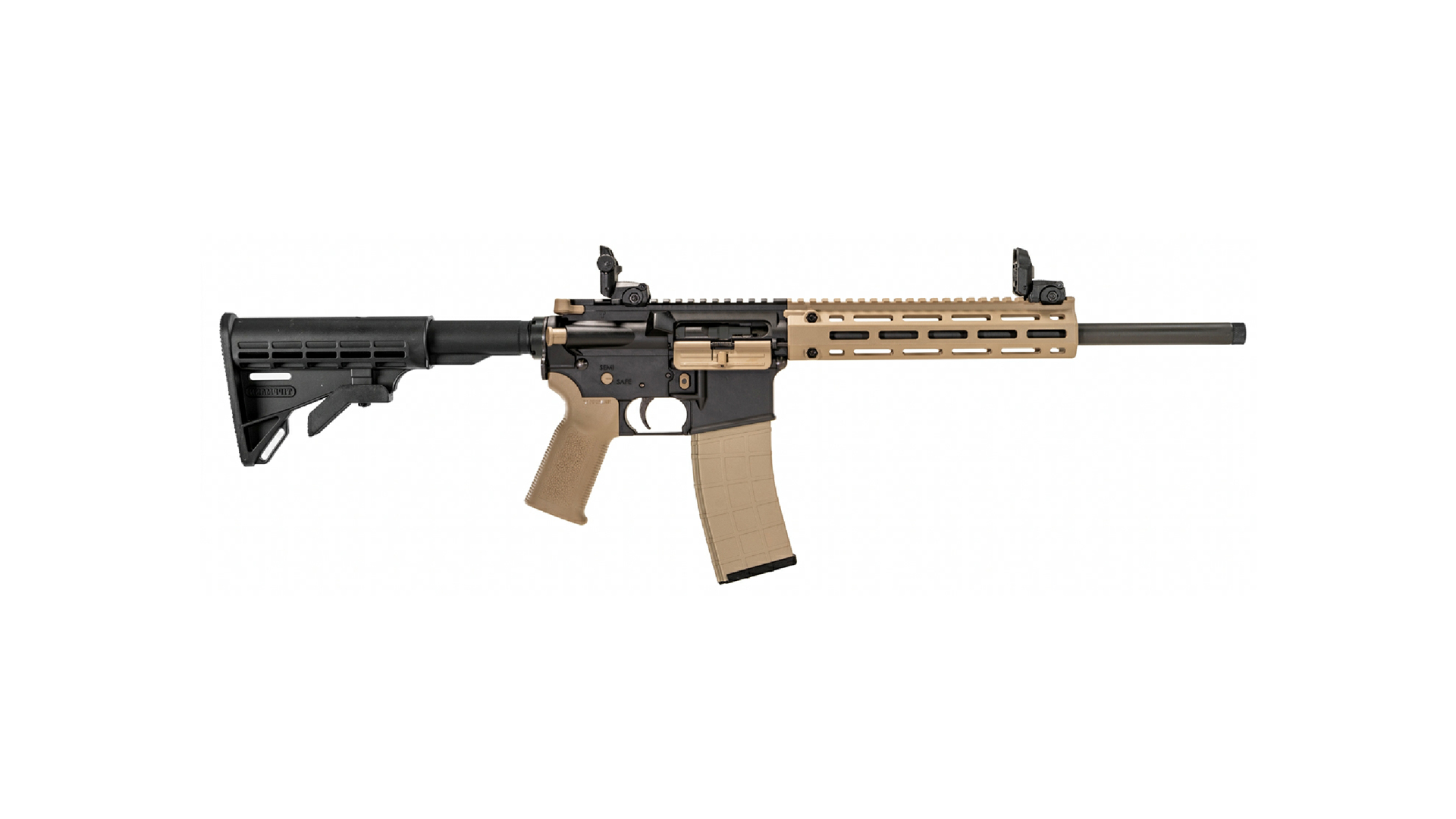
My first experience working with the American-made Tippmann Arms series of M4-22 rimfire ARs came along a couple of years ago. This was when I had the opportunity to evaluate the fully tricked-out .22 LR Redline race gun red-dot optic combo developed in conjunction with Tandemkross. I walked away from that shooting experience with a positive impression of what Tippmann products have to offer.
 The M4-22 LTE is a blowback-operated rimfire rifle patterned after the popular AR-15.
The M4-22 LTE is a blowback-operated rimfire rifle patterned after the popular AR-15.
But as rimfire shooting sports enthusiasts know, rifles configured specifically for competition can cost a bit more than some folks want to invest. The Redline package and its extras are well worth the investment, but it’s currently listed for $890. Recognizing customer requests for more affordable options, Tippmann launched the new-for-2024 LTE series with a suggested retail price of $515. And, as I found in the course of this evaluation, the company did a terrific job of maintaining its products' signature quality and performance while bringing the cost down.
 Tippmann Arms is a U.S.-based manufacturer that operates out of Fort Wayne, Ind.
Tippmann Arms is a U.S.-based manufacturer that operates out of Fort Wayne, Ind.
Like other M4-22 carbines, the LTE is a blowback-operated AR-15 pattern semi-automatic built around the .22 Long Rifle cartridge. Centerfire ARs chambered in 5.56 NATO need to be able to handle cartridge pressures of up to 62,000 p.s.i. The .22 LR tops out at around 24,000 p.s.i. These significantly lower pressure levels allow the LTE to operate safely with some polymer components replacing those usually made of aluminum and a set of receivers that are cast aluminum instead of aluminum forgings. This results in the LTE being strong enough for regular use, less expensive to manufacture and it has an unloaded weight of just 5 lbs., 5.1 ozs. with an empty magazine.
 Tippmann provides a set of in-house, polymer flip-up sights.
Tippmann provides a set of in-house, polymer flip-up sights.
One theme that the LTE borrows from the Redline guns is a set of polymer furniture and controls in a selection of different colors. This includes the M-Lok-slotted 9.25" handguard, charging handle, dustcover, the functional forward assist button, left-side safety selector lever, magazine release button, the removable Gen2 pistol grip and the body of the in-house 25-round magazine. Although the buffer tube and six-position shoulder stock are also made of polymer, they have a matte-black coloration that matches that of the E-coating applied to the receivers and the barrel's Parkerized finish. The rifle shown here has the FDE (flat dark earth) appointments, but other color options include Wolf Grey, Purple, OD Green, Robin Egg Blue and Black.
 The LTE weighs in at 5 lbs., 5.1 ozs. with an empty magazine.
The LTE weighs in at 5 lbs., 5.1 ozs. with an empty magazine.
The 16" long solid steel, round-profile barrel is the same one used in this company's PRO series. The muzzle is still threaded at 1/2x28 TPI for popular accessories, including compensators and sound suppressors. However, the usual A2 flash hider has been replaced with a knurled thread protector.
This rifle arrives with a set of Tippmann's polymer flip-up sights so that it can be put to work right out of the box. When these sights are folded down, they essentially provide a pistol sight picture for up-close shots. Both units are spring loaded with ambidextrous release levers. The front sight's post features an adjustment knob, no tools required, while the aperture rear sight is also knob adjustable for windage.
 The controls are laid out and operate in typical mil-spec AR-15 fashion.
The controls are laid out and operate in typical mil-spec AR-15 fashion.
The flattop, Picatinny railed upper and lower receiver are both mil-spec. This allows for the use of typical AR optics and compatible aftermarket parts. One exception would be the modified polymer charging handle paired with the proprietary M4-22 black-nitride bolt assembly. Although the bolt configuration is both light weight and unique, it’s clearly been influenced by pistol-caliber carbine bolt-carrier group designs. As a result, it reciprocates against a light weight polymer buffer and spring set into the polymer buffer tube. The castle nut, end plate and six-position buffer tube threading are all mil-spec, just in case someone wants to swap out the buffer assembly for an aftermarket option.
 Magazines with covers that match the LTE color options are available. Note the black unit shown above without its cover.
Magazines with covers that match the LTE color options are available. Note the black unit shown above without its cover.
One feature that Tippmann could scrimp on with this gun, but didn't, is the AR-compatible fire-control group. Many centerfire AR manufacturers ship guns with functional and reliable mil-spec triggers that have heavy, gritty and indistinct trigger pulls ranging from around 6 to 9 lbs. The LTE arrived with a single-stage, curved bow trigger assembly with a listed trigger pull weight of 4 lbs., 8 ozs. This particular trigger weighed in at 4 lbs., 6 ozs. with a clean, crisp, creep-free break. It was a just-right fit for this .22 LR. Although this carbine does accept drop-in trigger assemblies, I would be in no hurry to trade out the gun's existing trigger.
 Disassembling the LTE for cleaning follows the same steps as a pistol-caliber AR-15.
Disassembling the LTE for cleaning follows the same steps as a pistol-caliber AR-15.
For the range evaluation, the LTE was topped off with a Bushnell Rimfire 3-9X 40 mm Rifle Scope with a DZ22 Dropzone 22 reticle (RR3940BS4). With a suggested retail price of $100, this optic provides a useful set of sporting features at a fair price. The scope was supported by an AR style Weaver One-Piece SPR (48377) scope mount which lists for $70. This mount is tall enough with this optic to leave the factory-installed folding sights in place.
 A magnified sporting optic like the Bushnell Rimfire 3-9X 40 mm model is a great fit for plinking, target shooting and small game hunting.
A magnified sporting optic like the Bushnell Rimfire 3-9X 40 mm model is a great fit for plinking, target shooting and small game hunting.
A properly designed and built AR-pattern rimfire semi-automatic, like this one, is a real pleasure to work with at the shooting range. The LTE eliminates any learning curve with its utterly familiar AR layout paired with air gun levels of felt recoil. I particularly appreciated the ease of loading the three in-house 25-round magazines, one of which came with the rifle and the two extras that were provided for testing.
 The LTE blends the utter familiarity of an AR platform with the enjoyable range time that quality .22 LR rifles provide.
The LTE blends the utter familiarity of an AR platform with the enjoyable range time that quality .22 LR rifles provide.
No thumb busting was required to quickly refill the magazines, because the waffle pattern body is actually a slide cover. This cover can be released and pulled down to the magazine base or completely removed. The interior magazine's central channel exposes the follower's textured extension. Pinching and pulling down on the extension compresses the magazine spring allowing fresh cartridges to be slipped in at the top with ease. Tippmann also offers 10- and 15-round versions of its easy-load magazines and a crank-handle magazine speed loader, all of which are available through the company website.
 This carbine ran reliably with all of the ammunition tested.
This carbine ran reliably with all of the ammunition tested.
In regards to reliability, the LTE ticked right along like a metronome with the full range of .22 LR ammunition tested. The loads tested ranged from bulk box fodder to premium small game hunting rounds. There was just one malfunction in the course of informal and formal testing which was a failure to feed. In this case, the bullet was dented and bent in between the bolt face and the feeding ramp. I'm going to chalk this one up to a cartridge that was probably a bit out of spec.
Formal bench rested accuracy testing was conducted at 50 yards by firing five, five-shot groups with three different loads. Sometimes it seems like understanding the down range results is more art than science. The following results are a good example of this:

If this particular LTE was taken to a shooting range for a casual plinking session, and the only ammunition on hand was the Federal Champion lead hollow-point load tested here, it might seem like the rifle's accuracy potential was mediocre at best. All I can say is that this particular load and rifle just don't get along very well, especially since I've been seeing better group sizes than these with this exact same bulk box of Federal ammunition when firing it through other guns. But then again, the standard deviation in bullet velocities was 50, which is not a particularly impressive number.
 The best five-shot group of 0.61” was printed using the CCI AR Tactical load.
The best five-shot group of 0.61” was printed using the CCI AR Tactical load.
Switching over to the Winchester Wildcat round tightened up the groups noticeably, despite an even larger standard deviation of 65. Go figure. But the best performer of the test set was the CCI AR Tactical load. It's described by the manufacturer as being specifically tuned for semi-automatics like the LTE. This CCI round punched out the best individual five-shot group of 0.61" that was a ragged hole that had to be measured from side to side. In short, this rimfire carbine exhibited real accuracy potential but testing with various loads will probably be required to find the best performing gun and ammunition combination.
The new Tippmann Arms LTE series of M4-22 rimfire carbines offers a top-notch balance of features at a fair price. Even though the LTE costs less than other models, it does not feel or behave like a step down in quality. For those who are looking for a more general purpose .22 LR rifle, the LTE allows enthusiasts to save some money for ammunition, take advantage of the AR-15 components and enjoy a half dozen different color options for the furniture and appointments.

Tippmann Arms M4-22 LTE Specifications
Manufacturer: Tippmann Arms
Model: M4-22 LTE (A101224; FDE furniture and appointments)
Action Type: blow-back operated, semi-automatic, rimfire rifle
Chambering: .22 Long Rifle
Barrel: 16" alloy steel; round profile, Parkerized finish, 1/2x28 TPI muzzle
Receiver: cast aluminum; matte-black E-coating finish
Magazine: Tippmann proprietary, 25-round detachable box
Sights: adjustable Tippmann polymer flip-up
Trigger: AR-15-compatible, single-stage; 4-lb., 6-oz. pull
Overall Length: 30" to 33.25"
Drop @ Comb: 0.5"
Drop @ Heel: 0.5"
Accessories: owner's manual, one magazine, knurled thread protector, lock
MSRP: $515













